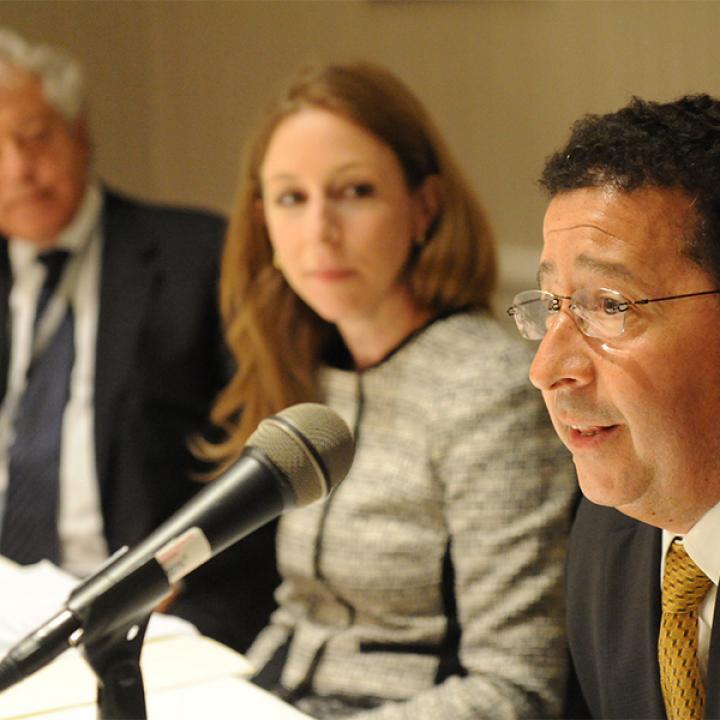
- Policy Analysis
- Conference Reports
America's Shifting Energy Landscape and Middle East Policy

A revolution in domestic production may bring the United States closer to energy independence, but American energy security will continue to depend on global markets and the stability of Middle East exports.
A former State Department energy specialist and a scholar of energy security joined a discussion of the revolution in American energy interests in the Middle East at The Washington Institute's 2014 Weinberg Founders Conference on May 8.
Elizabeth Rosenberg, director of the Center for a New American Security's Energy, Environment and Security Program, described sweeping recent changes in the U.S. energy sector: Oil production up 60 percent since 2008, natural gas production up 20 percent, overall energy imports down, and at pace to become a net exporter of liquefied natural gas (LNG) in 2015. Yet Rosenberg warned that the global nature of markets means that energy independence by itself will not make the United States more secure or powerful. American interests, even with regard to energy security, will require continued engagement globally and in the Middle East.
David Goldwyn, who served as the State Department's special envoy for international energy affairs in the Obama administration, noted the irony of the current energy revolution. The Obama administration came into office hoping to promote clean energy and renewable sources, but instead got a huge hydrocarbon boom. Goldwyn also argued that although the United States "no longer wants for physical barrels of oil," American energy security still depends on the global market. And globally, the market is becoming very tight, with disruptions in supplies from Libya, Iran, Sudan, and Nigeria. Even Saudi Arabia's stability and desire to invest in necessary production and distribution upgrades cannot be taken for granted, Goldwyn warned.
David Goldwyn was State Department special envoy for international energy affairs in the Obama administration.
Elizabeth Rosenberg is director of the Energy, Environment and Security Program at the Center for a New American Security.
Simon Henderson, who moderated this discussion, is The Washington's Institute's Baker fellow and director of its Gulf and Energy Politics Program.



